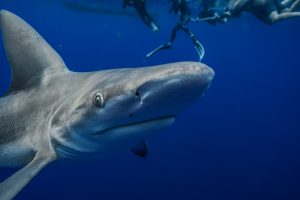By Jim Waymer. Originally published on Florida Today.
Sharks sink to the bottom dead, slaughtered only for their fins. Flounders are floundering under an onslaught of hooks. And diamondback terrapins drown in untold abandoned crab traps.
Those are among the creature discomforts that Florida wildlife officials will address this week, fishing for better ways to preserve those and other species.
Because of COVID-19, the Florida Fish and Wildlife Conservation Commission (FWC) will hold its regular two-day meeting virtually, which the public can watch live on the Florida Channel at 9 a.m. Wednesday and the same time Thursday.
High on Wednesday’s agenda is a discussion about the status of sharks in Florida, and new and existing shark fishing rules in federal and state waters.
This year, Gov. Ron DeSantis signed into law the Kristin Jacobs Ocean Conservation Act, which took effect Oct. 1. The law prohibits import, export and sale of separated shark fins in Florida. Some fishermen illegally catch sharks just for their fins — to sell for shark-fin soup — and inhumanely dump the rest of the shark at sea.
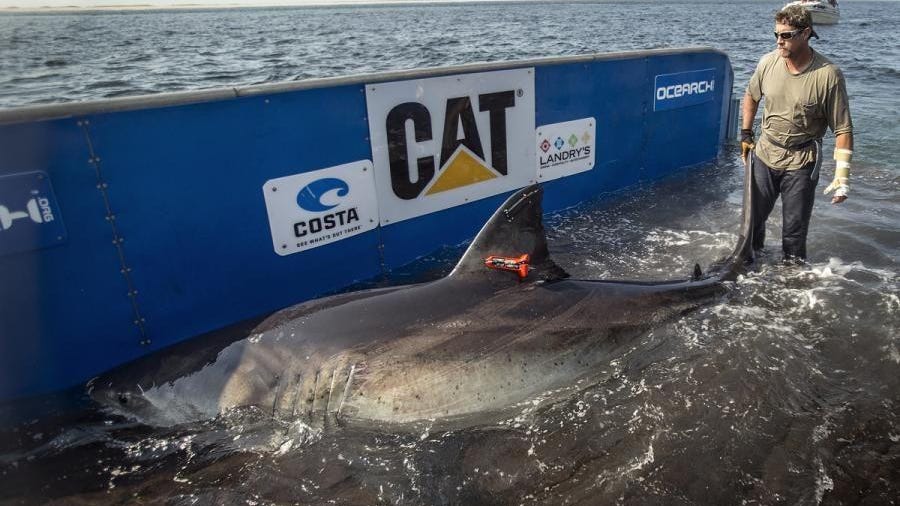
Florida’s shark-fin bill provides exceptions for commercial shark harvesters and wholesale dealers with a federal shark permit as of Jan. 1, 2020, allowing them to continue to buy and sell shark fins from legally landed sharks. The bill also requires FWC to evaluate the potential economic impacts of imposing a total ban on the state’s shark fin fishery.
The state wildlife agency will identify ways to offset those potential impacts and evaluate the effects on shark populations — in a report due to the governor and the Florida Legislature by Dec. 31, 2021.
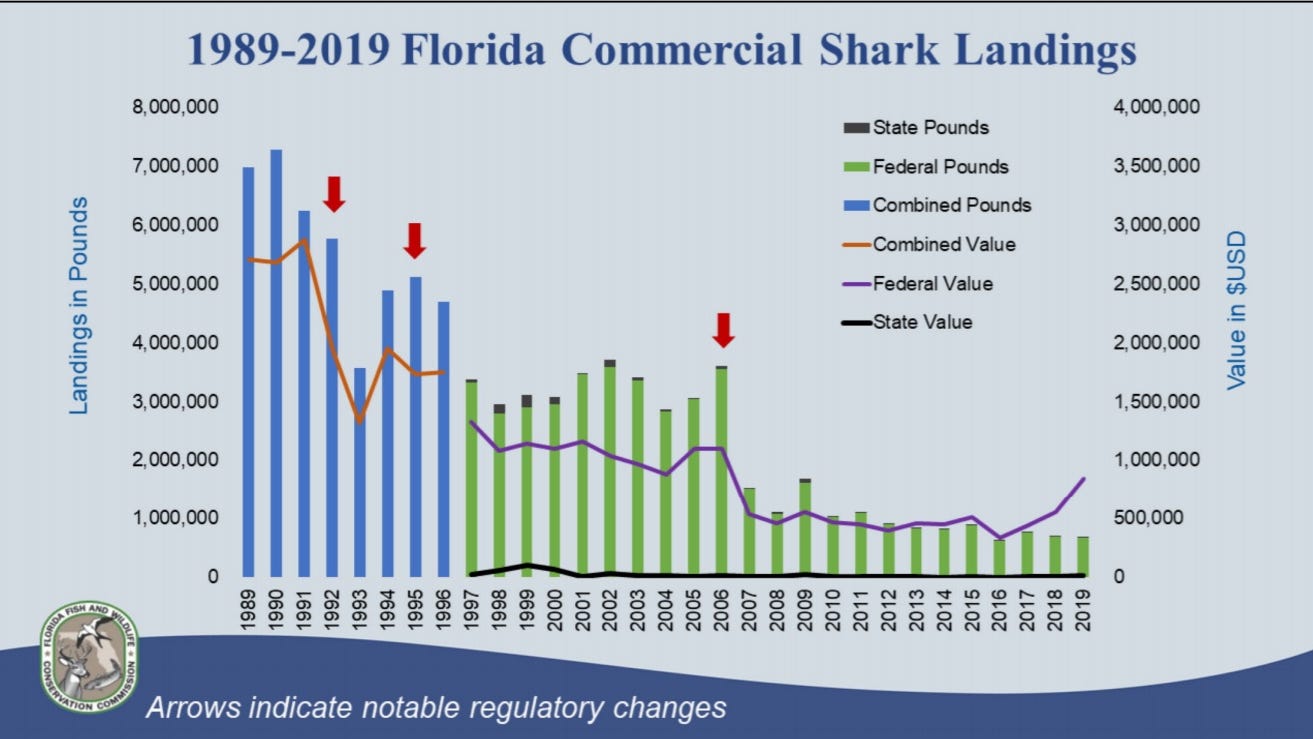
In the mid-1970s through the early-1990s, shark stocks rapidly declined throughout the Eastern United States, FWC notes in its presentation to commissioners, due to high rates of harvest and an increased demand for shark meat, fins and other shark products. Florida began establishing shark fishing regulations in the early-1990s, and now many shark populations are recovering.
“In recent years, as international awareness of global shark declines and public outcry over the inhumane practice of finning has increased, demand for shark fins has declined in some areas, like mainland China,” FWC notes in its presentation to the Commission. “However, in other areas outside of the mainland, like Macau and Thailand, these markets are emerging or expanding.”
Flounder keep floundering
In late-November, thousands of flounder, rays and other fish began floating up dead in the Merritt Island area of the Indian River Lagoon, the victims of an ongoing algae bloom.
But, in the long term, excess fishing pressure appears to be what’s slowly doing flounder in. So FWC on Wednesday will consider a stock status update by the state agency that found that the flounder fishery on Florida’s Atlantic coast is “likely overfished and undergoing overfishing and that there has been a general decline in the fishery statewide in recent years.”
FWC staff will present proposed final rules to update flounder management, including extending all state flounder regulations into federal waters. Other rules under consideration include increasing the minimum size limit from 12 to 14 inches (recreational and commercial); decreasing the recreational daily bag limit from 10 to five fish per person; and establishing an Oct. 15 to Nov. 30 recreational closure.
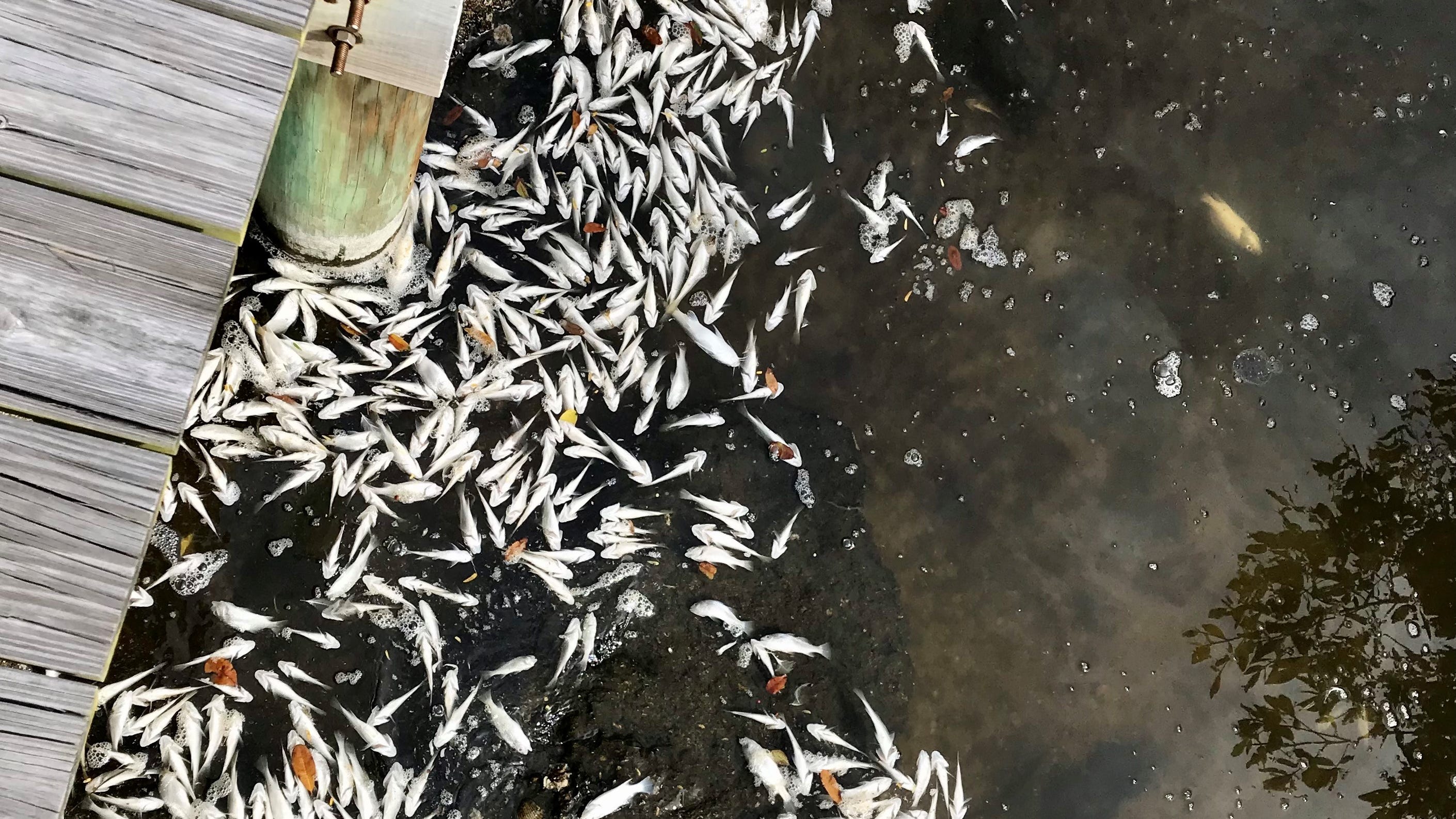
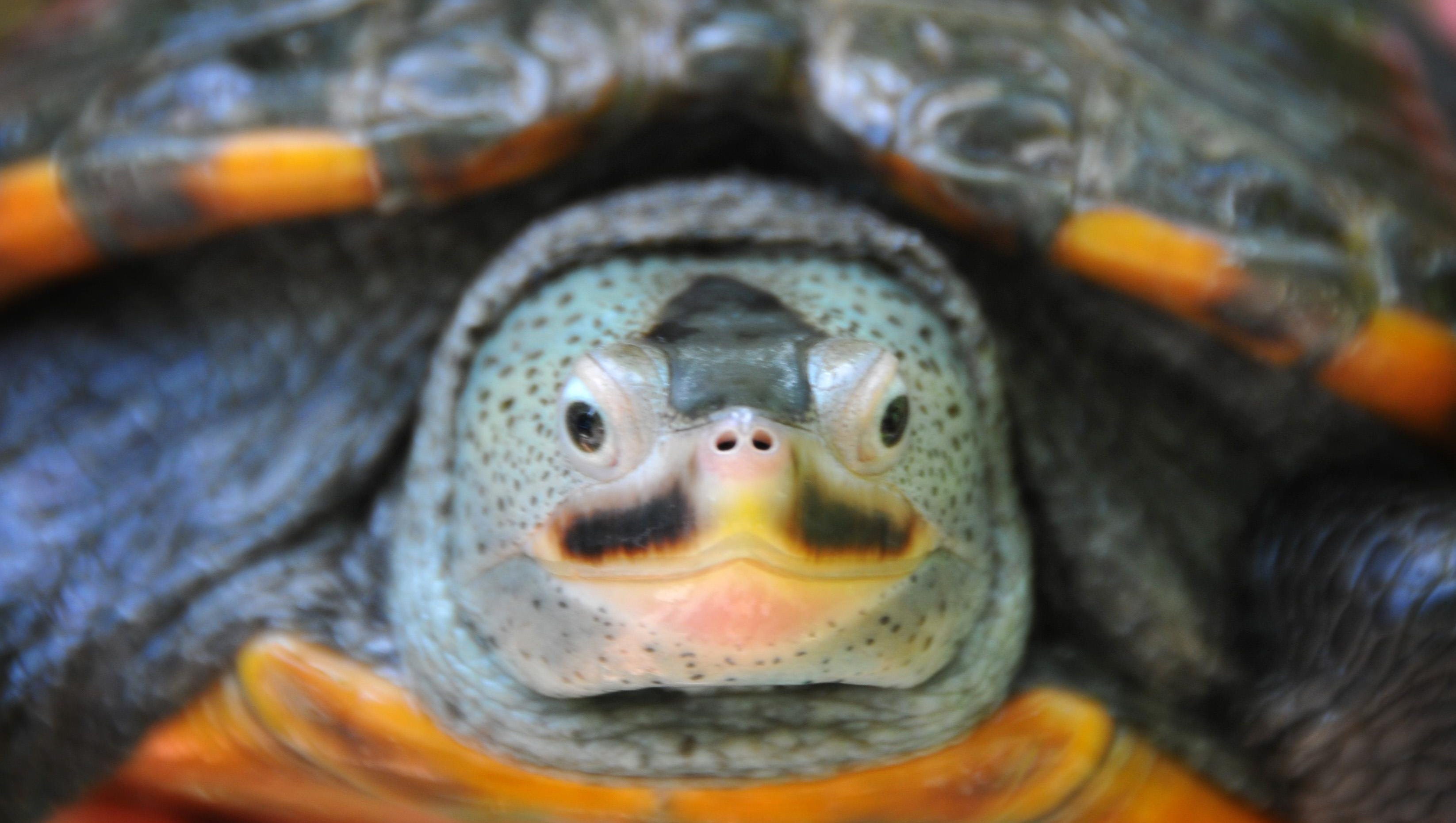
Terrapins are in trouble, too
FWC wants to save a turtle that was once a plentiful delicacy in Florida, so the agency is considering requiring devices in blue crab traps that would enable trapped terrapins to slip free. The proposal would require blue crab traps be compliant by Jan. 1, 2024.
Terrapin issues hit FWC’s agenda Thursday.
Diamondback terrapins range from Massachusetts to Texas, with Florida making up about 20% of their range. They were considered a delicacy in the late-1800s and early-1900s, so were overharvested in huge numbers. They get no federal protection, and their conservation status varies by state.
Current threats include habitat loss, drowning in active and derelict crab traps, illegal poaching for pet markets, getting hit by cars and nest predation, FWC says.
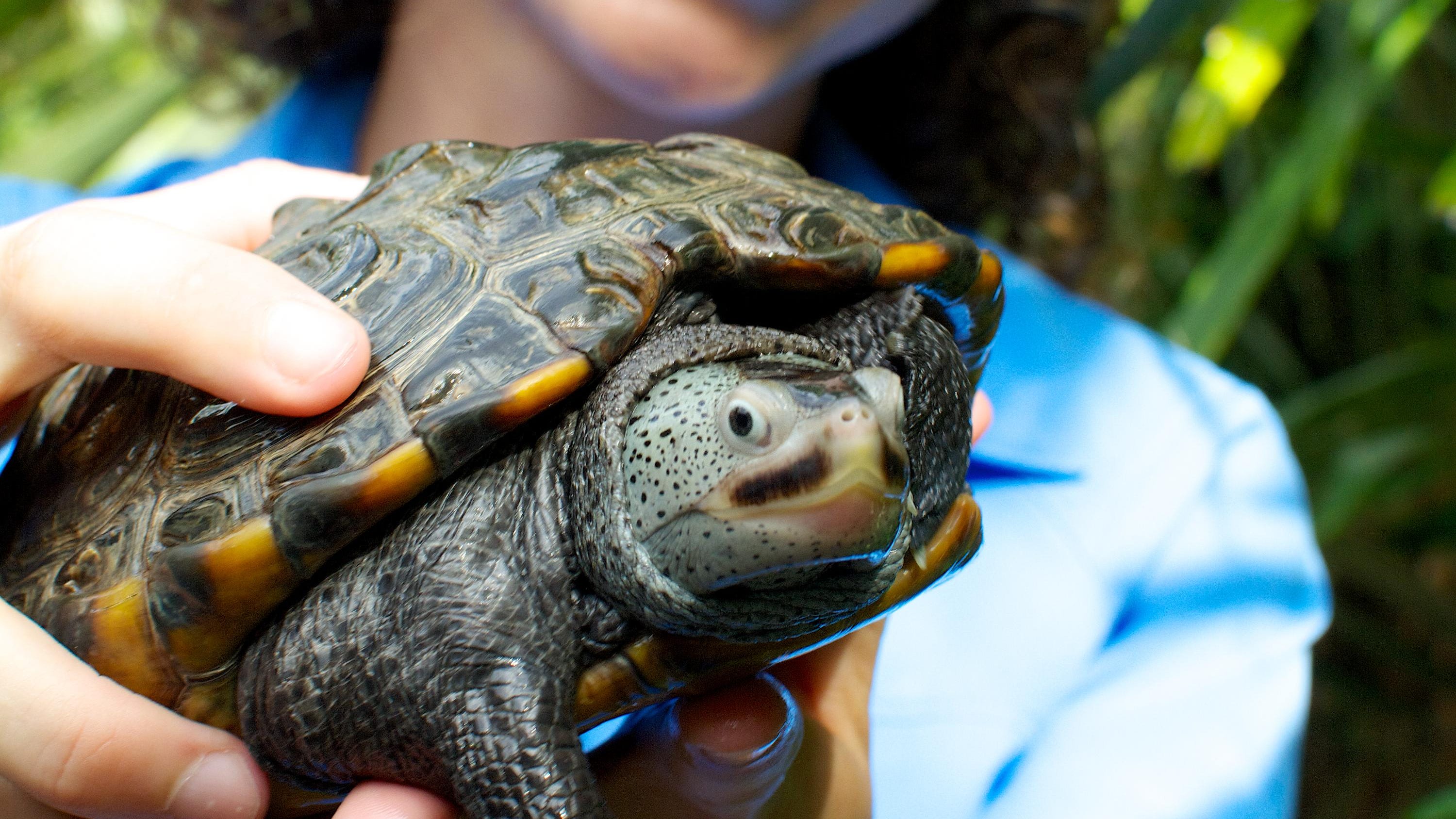
Florida designates them “a species of greatest conservation need” in the State Wildlife Action Plan. That means it is in decline or at a great risk of becoming imperiled in the future, FWC says.
It’s currently illegal in Florida to take terrapin eggs or sell wild-caught terrapins, but the Commission also is considering banning all wild harvest of diamondback terrapins or possession of them, without state permits.
Most states prohibit the removal of diamondback terrapins from the wild. Without a permit, Floridians currently can take one terrapin per day, and transport one at a time. There is a personal possession limit of two terrapins per person, FWC says, which by default prohibits captive breeding of the species.
Watch it live
The Florida Fish and Wildlife Conservation Commission meets 9 a.m. Wednesday, Dec. 16 and at the same time Thursday. You can watch the meetings live at the Florida Channel link here: https://thefloridachannel.org/ The meeting also will be recorded.
See the meeting agenda at this link

